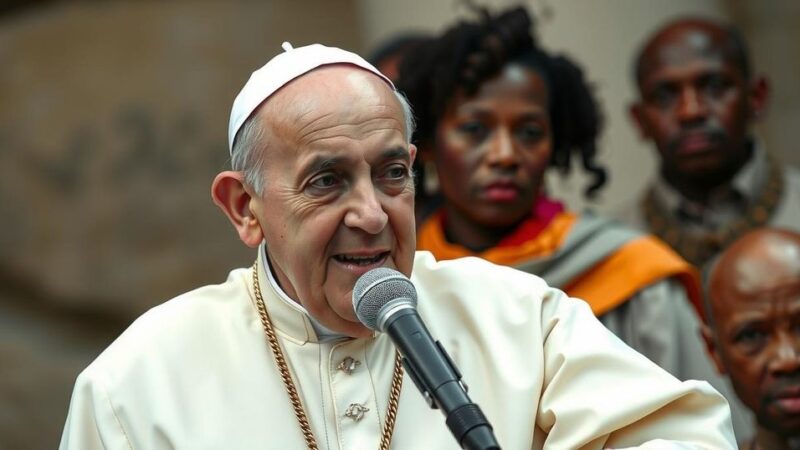The World Economic Forum’s Global Risks Report emphasizes geopolitical tensions, climate change, and misinformation as primary threats for 2025. Investors can mitigate these risks through targeted ETFs, including defense, clean energy, and cybersecurity funds. These investment strategies provide the necessary protection and opportunities for engaged investors navigating an uncertain market.
The World Economic Forum’s 2025 Global Risks Report identifies geopolitical tensions, climate change, and disinformation as the primary threats to global stability. Investors are encouraged to utilize specific exchange-traded funds (ETFs) to hedge against these challenges while still seeking potential gains. Defense ETFs, clean energy funds, and cybersecurity ETFs are highlighted as viable options for navigating these risks effectively.
Among the most critical global risks identified, armed conflict is the foremost concern, with 23% of survey respondents pointing to state-based conflicts as significant threats. Defense ETFs, such as the iShares U.S. Aerospace & Defense ETF (ITA), offer exposure to companies poised to benefit from increased military spending, while the SPDR S&P Kensho Future Security ETF (FITE) focuses on innovating solutions within the global security space.
Climate change continues to exacerbate extreme weather events, making resilient investment strategies crucial. Clean energy ETFs, such as the Invesco Solar ETF (TAN), present opportunities for investors by targeting companies positioned favorably for the transition to renewable energy solutions and decarbonization efforts.
Addressing the threat of misinformation and disinformation, which the WEF has marked as a top risk for the second consecutive year, cybersecurity firms emerge as essential players in the battle against these issues. ETFs like the First Trust Nasdaq Cybersecurity ETF (CIBR) invest in key cybersecurity companies, including Broadcom, Crowdstrike, and Cisco Systems, demonstrating the potential for growth in this sector as media firms seek to establish trustworthiness across their content.
ETFs serve as suitable investment instruments during turbulent times, providing flexibility and cost-efficiency to investors looking to hedge risks. Insights gathered from over 900 global risk experts underscore the complex and uncertain trading environment faced today. Carolin Klint of Marsh McLennan Europe emphasizes the need to acknowledge the fragmentation in economic conditions, leading to the necessity for investors to adjust their strategies accordingly.
In conclusion, building a resilient investment portfolio aligned with key global challenges can empower investors to navigate 2025 successfully. Investing in targeted ETFs offers an effective way to address geopolitical, environmental, and cyber risks, facilitating sustainable growth in a volatile market.
The discussion centers around the findings from the World Economic Forum’s annual survey regarding the most pressing global risks anticipated for 2025. In an era marked by increasing geopolitical tensions, heightened climate concerns, and rampant disinformation, investment strategies are becoming essential for safeguarding assets while maximizing potential returns. This context underlines the importance of specialized ETFs that can empower investors to effectively manage these evolving threats.
In summary, navigating the investment landscape in 2025 will require a strategic approach that addresses the evolving risks presented by geopolitical tensions, climate change, and misinformation. Selecting appropriate ETFs allows for diversified exposure and optimal hedging while still pursuing growth opportunities. By aligning investment choices with these identified threats, investors can build resilient portfolios capable of weathering future uncertainties.
Original Source: www.benzinga.com







